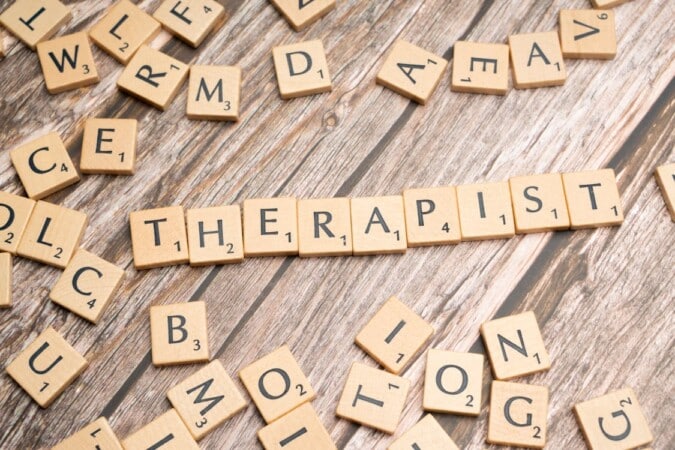When searching for a therapist, particularly one specializing in Dialectical Behavior Therapy (DBT), it’s easy to feel overwhelmed by the sheer number of professionals available. With so many choices, how do you know which qualities matter most in an effective therapist? Finding the right therapist who can truly support your journey requires more than just expertise—it’s also about personal qualities that foster a safe and nurturing environment.
In Agoura Hills, where unique community challenges and resources abound, identifying these qualities becomes even more essential. Let’s explore five key traits that distinguish an effective DBT therapist and help you make an informed decision.
Why Choose a DBT Therapist near Agoura Hills?
One of the primary reasons to choose a local DBT therapist near Agoura Hills is proximity. Being close to your therapist makes attending regular sessions more convenient, fostering consistency and reliability in your therapy. Clients often find it easier to make appointments or attend emergency sessions when they’re not dealing with long commutes. In fact, research suggests that clients who report shorter travel times are 20% more likely to stay committed to their therapeutic routines. This consistency is key to building a strong therapeutic relationship and ensuring effective treatment outcomes.
Moreover, local therapists understand the surrounding community resources available to you. They can guide you toward additional services, such as support groups or workshops, that complement your DBT treatment. This interconnectedness of services creates a holistic support system for your healing journey.
Local Knowledge for Personalized Therapy
A therapist with knowledge of Agoura Hills’ unique social dynamics can offer insights that are more relevant to your experiences. Whether it’s the pressures of school, family expectations, or cultural factors, local therapists are better equipped to understand these challenges. This localized understanding helps therapists create strategies that resonate with your life, enhancing treatment effectiveness.
Emotional Regulation Mastery
A core component of DBT is emotional regulation, which teaches clients to not only endure emotions but also to understand and guide them productively. Think of emotions like a storm—you can’t control the weather, but with the right tools, you can navigate through it. Emotional regulation empowers you to weather life’s challenges with resilience.
Techniques for Emotional Regulation
Some effective emotional regulation techniques include:
- Mindfulness Exercises: These practices, like meditation or deep-breathing techniques, help you stay present and aware of your emotions without acting impulsively. Mindfulness gives you the space to reflect before reacting, helping you manage challenging emotions in real-time.
- Cognitive Reframing: This technique helps you change your perspective on situations, reducing emotional turmoil and fostering personal growth. For example, instead of thinking, “I failed at this task,” reframe it as, “This is an opportunity to learn and improve.”
- Distress Tolerance: This set of skills teaches you to manage acute emotional distress without resorting to harmful behaviors. By learning to sit with discomfort, you can find healthy distractions or ground yourself by engaging with the world around you.
Mastering these techniques will allow you to develop healthier emotional responses, supporting your overall well-being.
Local Expertise in Emotional Regulation
At San Fernando Valley DBT, many therapists are experts in emotional regulation strategies. For example, Wendy Douglas, LCSW, MSPH, with nearly 20 years of experience, is passionate about helping those who struggle with emotion dysregulation. With such skilled professionals, you can confidently engage in therapy and grow towards a life worth living.
Effective Communication Techniques
Communication is key in DBT, as it helps clients express their thoughts and emotions clearly and purposefully. One technique that therapists often teach is DEARMAN, which stands for
- Describe: Clearly and objectively state the situation or problem.
- Express: Share your feelings about the situation.
- Assert: Clearly state what you want or need.
- Reinforce: Explain the positive consequences of getting what you want.
- Mindful: Stay focused on your goal and avoid distractions.
- Appear confident: Use confident body language and tone of voice.
- Negotiate: Be willing to compromise if necessary.
Each of these components helps clients voice their needs confidently while fostering healthier relationships.
Additionally, active listening is a crucial part of communication. It’s not just about hearing words—it’s about fully understanding the emotions behind them. By practicing active listening, you improve your ability to engage in deeper, more meaningful conversations.
Mindfulness Practices
Mindfulness isn’t just about meditation—it’s a lifestyle. At San Fernando Valley DBT, therapists guide clients through mindfulness exercises, helping them understand their emotions and reactions. This approach empowers individuals to reduce emotional distress and build resilience.
Daily Life Applications of Mindfulness
Mindfulness can be integrated into everyday life. For example, mindful eating invites you to slow down and savor each bite, while mindful walking encourages awareness of your surroundings. These practices enhance emotional well-being by grounding you in the present moment.
Empathy and Validation Skills
Empathy and validation are central to DBT. These techniques help clients feel truly heard and understood, fostering a safe environment for open communication. Therapists use methods like active affirmation, reflective statements, and empathetic listening to build trust and rapport with clients.
Conclusion
If you’re looking for a DBT therapist near Agoura Hills who embodies these essential qualities, San Fernando Valley DBT is here to support you. Visit us today or call (310) 994 2317 to begin your journey toward a life worth living.

